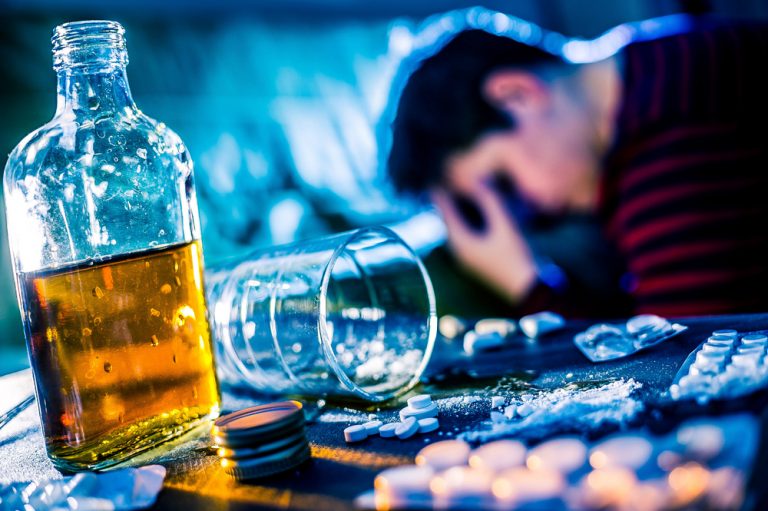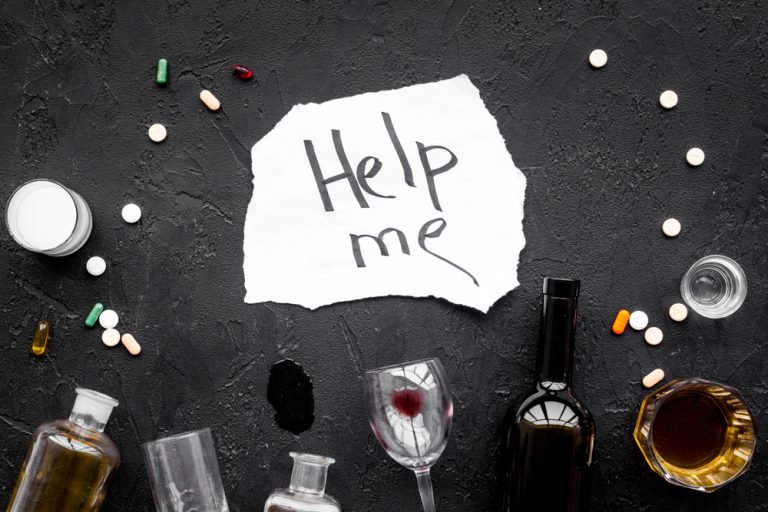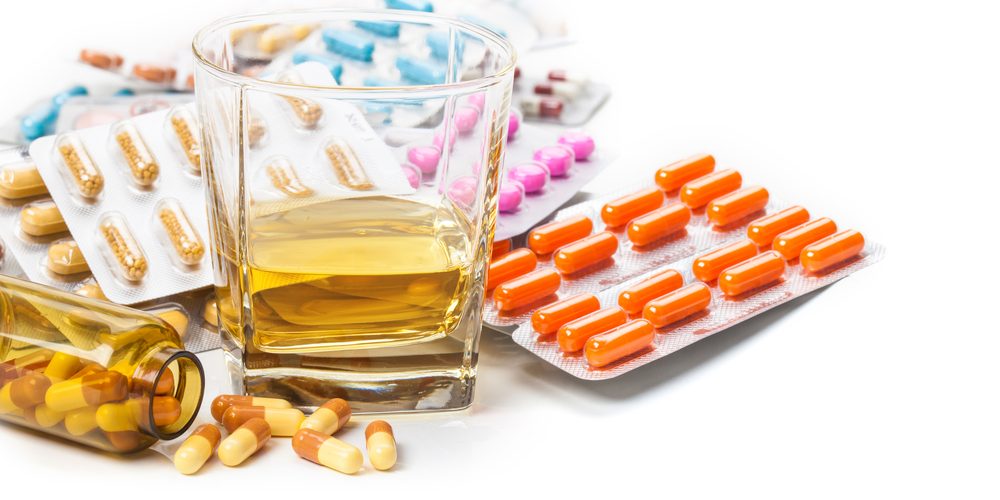Alcohol is known to interact with many medications, particularly antibiotics, sometimes leading to unpleasant or even dangerous side effects. One of the most well-known examples is the reaction between alcohol and metronidazole, which can cause nausea, flushing, and headaches.
But what about nitrofurantoin, a commonly prescribed antibiotic for urinary tract infections, including bladder infections? Many patients are unsure whether it’s safe to drink alcohol while taking this medication. Combining these two substances may pose risks or lead to potential interactions, so it is important to seek medical guidance and exercise caution before consuming both together.
At PCP we are dedicated to educating our readers on the dangers of combining alcohol with certain medications. In this article, we’ll explore what nitrofurantoin is, how it works, and whether mixing it with alcohol is risky.
If you’re taking nitrofurantoin and wondering about alcohol, this guide will offer clear, practical advice.
What Is Nitrofurantoin?
Nitrofurantoin is an antibiotic medicine commonly used to treat urinary infections, particularly a relatively common bladder infection called acute uncomplicated cystitis. Nitrofurantoin is prescribed to treat urinary tract infections caused by bacteria. This medicine is effective against bacterial infections of the bladder and urinary tract. Nitrofurantoin kills bacteria by interfering with their cellular functions, disrupting their ability to survive. Nitrofurantoin works by inhibiting the bacteria’s ability to produce essential proteins and substances necessary for growth and reproduction. The drug goes by several brand names, such as Aratoin, Furadantin, Macrobid, and Macrodantin. The medication comes in capsules, tablets, or a liquid suspension, which are usually taken for five days or more.
Although nitrofurantoin is useful for dealing with urinary tract infections, it can occasionally lead to side effects like nausea, diarrhoea and headaches.
To improve absorption and reduce side effects, nitrofurantoin should be taken with food.
Some sources also advise against mixing nitrofurantoin with alcohol, citing several potentially harmful consequences. So let’s dive into the truth behind the dangers of taking alcohol while using nitrofurantoin.
Why You Should Not Mix Nitrofurantoin and Alcohol

Studies on the relationship between alcohol consumption and nitrofurantoin use are a bit confusing. Older studies noted unpleasant adverse effects from mixing the two, raising concerns about potentially dangerous interactions. However, more recent research has disproved these findings.
Individuals with a history of liver problems should be especially cautious when using nitrofurantoin and alcohol, as liver health can influence drug metabolism and increase the risk of side effects.
So let’s dive into the truth behind the dangers of taking alcohol while using nitrofurantoin. Mixing alcohol with nitrofurantoin can increase the risk of potentially dangerous interactions, and it is important to understand any potential interaction between nitrofurantoin and alcohol to ensure your safety during treatment. Alcohol can impair the body’s ability to fight infection and recover from illness, which may delay healing from a urinary tract infection. Additionally, alcohol can irritate the bladder and urinary tract, worsening symptoms of infection. Making lifestyle changes, such as avoiding alcohol, can help ease symptoms and support recovery.
Nitrofurantoin does not have known interactions with most foods, but it is still important to follow your healthcare provider’s advice regarding diet and medication use.
Common side effects of nitrofurantoin include nausea, headache, and dizziness. Patients should monitor for these common side effects and report any side effect to their healthcare provider.
To understand why researchers have conflicting opinions on these two medications it’s important to first understand a well-known medical phenomenon called the disulfiram effect
What Is the Disulfiram Effect?
Disulfiram is a medication approved by the FDA in the 1950s for the treatment of alcohol use disorder. This was because researchers discovered that people who were exposed to disulfiram and subsequently consumed alcohol developed unpleasant side effects like nausea, flushing and headaches – a phenomenon called the disulfiram effect.
The medication was popularized as a part of a type of treatment for alcohol dependence called aversion conditioning. Aversion conditioning is a behavioural therapy technique that works by pairing unwanted behaviours with unpleasant effects, thereby discouraging that particular behaviour.
Over the years other medications were found to produce a similar reaction when combined with alcohol. Some popular examples include antibiotics like metronidazole, tinidazole, trimethoprim-sulfamethoxazole, and certain medications for diabetes.
Does Nitrofurantoin Produce a Disulfiram-like Reaction?
Researchers used to classify nitrofurantoin as one of the antibiotics known to cause a disulfiram-like reaction. However, more recent studies disprove this claim. Nitrofurantoin does not directly interact with alcohol, meaning there is no chemical or pharmacological interaction between the two. However, that does not mean that mixing nitrofurantoin and alcohol is a good idea, as nitrofurantoin interaction concerns still exist—alcohol can irritate the bladder and potentially worsen UTI symptoms or side effects, so caution is advise
Why You Should Avoid Using Nitrofurantoin With Alcohol

Even though nitrofurantoin appears not to cause a disulfiram-like effect, there are several other reasons to avoid using the medication with alcohol.
There is a higher risk and increased risk of side effects and complications when combining nitrofurantoin and alcohol, especially for those with alcohol dependency or certain individual factors such as age, weight, or overall health.
Combining both substances may worsen the side effects of nitrofurantoin, which are already quite similar to the effects consuming alcohol, such as nausea, headaches, and diarrhea. Potential interactions between alcohol and nitrofurantoin can also increase the risk of stomach pain and bladder irritation.
Excessive alcohol consumption can lead to dehydration by causing you to pee more frequently. Dehydration reduces the ability of the kidneys to function properly, which is important since nitrofurantoin is excreted by the kidneys. Alcohol can also interfere with the body’s ability to metabolize drugs, potentially reducing the medication’s effectiveness and potentially impacting the healing process.
Alcohol irritates the bladder, which can worsen urinary tract infections and make nitrofurantoin less effective.
Alcohol use also weakens the immune system, making it hard for the body to fight off infections.
It is important to exercise caution and consult a healthcare provider before you consume alcohol or take nitrofurantoin, especially during nitrofurantoin treatment, to understand the potential interactions and effects based on your individual factors.
Nitrofurantoin treatment is most effective when you avoid alcohol, as alcohol can hinder the healing process, while abstaining from alcohol helps promote healing and supports the body’s recovery.
Serious Side Effects of Nitrofurantoin
While nitrofurantoin is a commonly prescribed antibiotic for treating urinary tract infections, it’s important to be aware of the potential for serious side effects. In rare cases, nitrofurantoin can cause lung problems, liver damage, or nerve issues such as peripheral neuropathy. If you notice symptoms like unusual tiredness, persistent stomach pain, or signs of an allergic reaction (such as rash, swelling, or difficulty breathing), seek medical attention immediately.
Certain individuals are at higher risk for complications, especially those with a history of kidney problems or alcohol dependence. Drinking alcohol while taking nitrofurantoin can further increase the risk of serious side effects and may worsen existing health conditions. Always inform your healthcare provider if you have any underlying health issues before starting this medication. Promptly reporting any new or severe symptoms during treatment can help prevent long-term complications and ensure your safety.
Safety Precautions
To get the most benefit from nitrofurantoin and reduce the risk of potentially dangerous interactions, it’s essential to take some safety precautions. Before starting treatment, let your healthcare provider know if you have any kidney problems, liver issues, or other medical conditions. Be sure to mention all other medications, supplements, or over-the-counter medicines you are taking, as mixing alcohol or certain medications with nitrofurantoin can increase the risk of side effects.
If you are pregnant, planning to become pregnant, or breastfeeding, consult your healthcare provider before taking nitrofurantoin, as it may not be suitable for everyone and could pose risks to an unborn baby. Remember, mixing alcohol with nitrofurantoin can delay your recovery and increase the likelihood of side effects. Following your healthcare provider’s advice and being open about your medical history will help ensure a safe and effective treatment experience.
What If You’ve Already Taken Alcohol While Using Nitrofurantoin?
If you’re reading this post and you’ve already combined alcohol and nitrofurantoin, don’t panic. There are no known interactions between nitrofurantoin and alcohol, but it is still important to monitor for any side effects. Simply continue your medications and avoid further alcohol use. However, if you’re experiencing unpleasant side effects like nausea, flushing, and headaches reach out to your healthcare provider for more information.
How Soon Can You Start Drinking Again After Taking Nitrofurantoin?
There is no hard and fast rule concerning when it’s safe to continue drinking after using nitrofurantoin. However, a safe piece of advice would be to wait until the UTI symptoms have disappeared and you’ve finished your course of nitrofurantoin.
Other Common Drug Interactions with Alcohol
Here are some other medications which shouldn’t be taken with alcohol.
Metronidazole. Metronidazole interacts strongly with alcohol, often causing a disulfiram-like reaction. This can result in flushing, nausea, vomiting, abdominal cramps, and headache. Avoid alcohol completely while on this medication.
Tinidazole. Similar to metronidazole, tinidazole can cause a disulfiram-like reaction when combined with alcohol. As such, alcohol should be completely avoided.
Ketoconazole. Ketoconazole, especially in oral form, carries a risk of liver toxicity. Alcohol can worsen this risk, potentially leading to serious damage to the liver side effects. To minimize harm, alcohol should be avoided while taking ketoconazole.
Griseofulvin. Although less common than metronidazole, griseofulvin may also induce a disulfiram-like reaction with alcohol. It is safest to avoid alcohol while using this medication.
Rifampin. Combining rifampin and alcohol can increase the risk of liver toxicity. Avoid or significantly limit alcohol consumption during therapy with this drug.
Isoniazid. Alcohol increases the risk of liver damage when taken with isoniazid. The combined hepatotoxic effect can lead to liver inflammation, so complete avoidance of alcohol is recommended during treatment.
Naproxen.Naproxen is a nonsteroidal anti-inflammatory drug (NSAID) used to relieve pain and inflammation. Drinking alcohol while taking naproxen can increase the risk of stomach irritation, gastrointestinal bleeding, and ulcers.
Ethionamide. This drug may cause a disulfiram-like reaction when taken with alcohol, including symptoms such as nausea, vomiting, flushing, and hypotension. Avoiding alcohol is strongly advised.
Pyrazinamide. Pyrazinamide is known for its potential hepatotoxic effects, and alcohol increases this risk. To protect liver health, alcohol should be completely avoided during treatment.
Linezolid. Linezolid can react with aged or fermented alcohols, such as wine and beer, causing hypertensive crises. Patients are warned to avoid these types of alcoholic beverages.
Tramadol. Alcohol can dangerously increase the sedative effects of tramadol and raise the risk of seizures, respiratory depression, or even death. Avoid alcohol entirely while on tramadol.
Diazepam**(Valium)**. This benzodiazepine depresses the central nervous system. Combining it with alcohol can intensify drowsiness, impair motor control, and increase overdose risk. Total avoidance is necessary.
Warfarin. Alcohol can interfere with warfarin metabolism, affecting its blood-thinning properties. This can either increase the risk of bleeding or reduce its effectiveness.
Amitriptyline. Alcohol intensifies the sedative effects of this antidepressant, increasing the risk of dizziness, confusion, and poor coordination. Avoid alcohol to stay safe during treatment.
Remember that this list is by no means exhaustive. If you’re unsure about the interactions of a certain medication with alcohol don’t hesitate to reach out to your healthcare provider for guidance. Interactions can also occur with other medication, so always check with your provider about any drugs you are taking.
Reach Out Today

While nitrofurantoin may not cause the severe disulfiram-like reactions associated with other antibiotics, mixing it with alcohol is still not a good idea. Alcohol can worsen side effects, reduce the drug’s effectiveness, and slow down your recovery.
If you’re using nitrofurantoin, it’s best to avoid drinking until you’ve completed your course and your symptoms have cleared. When in doubt, always consult your doctor or pharmacist for personalized advice. For safe medication and alcohol use, seek guidance from medical professionals who can provide recommendations tailored to your health needs.
Your health and comfort come first—so skip the drink, speed up your healing, and give your body the best chance to fight off infection effectively. Recovery is worth the wait. Responsible behavior and following medical advice are essential for effective disease control.
Need help navigating medication and alcohol use? Contact PCP today to speak with a trusted health advisor.
Author
-
Dr Otulana is PCP’s longest-serving doctor. He is an experienced Physician with Specialist Interest in Substance Misuse Management and he has a wide range of experience in the assessment and management (including detoxification) of clients with various drug and substance addiction problems. Dr Otulana started practising as a doctor in 2000 and with over 10 years as an Addiction Physician. He is an Advanced Addiction Practitioner Member of Addiction Professionals and also holds the Certificate in Clinical Psychopharmacology (Part 1) of the British Association for Psychopharmacology. He is additionally a strong healthcare services professional with a Master of Business Administration (M.B.A.) degree from Cambridge University Judge Business School.
View all posts








